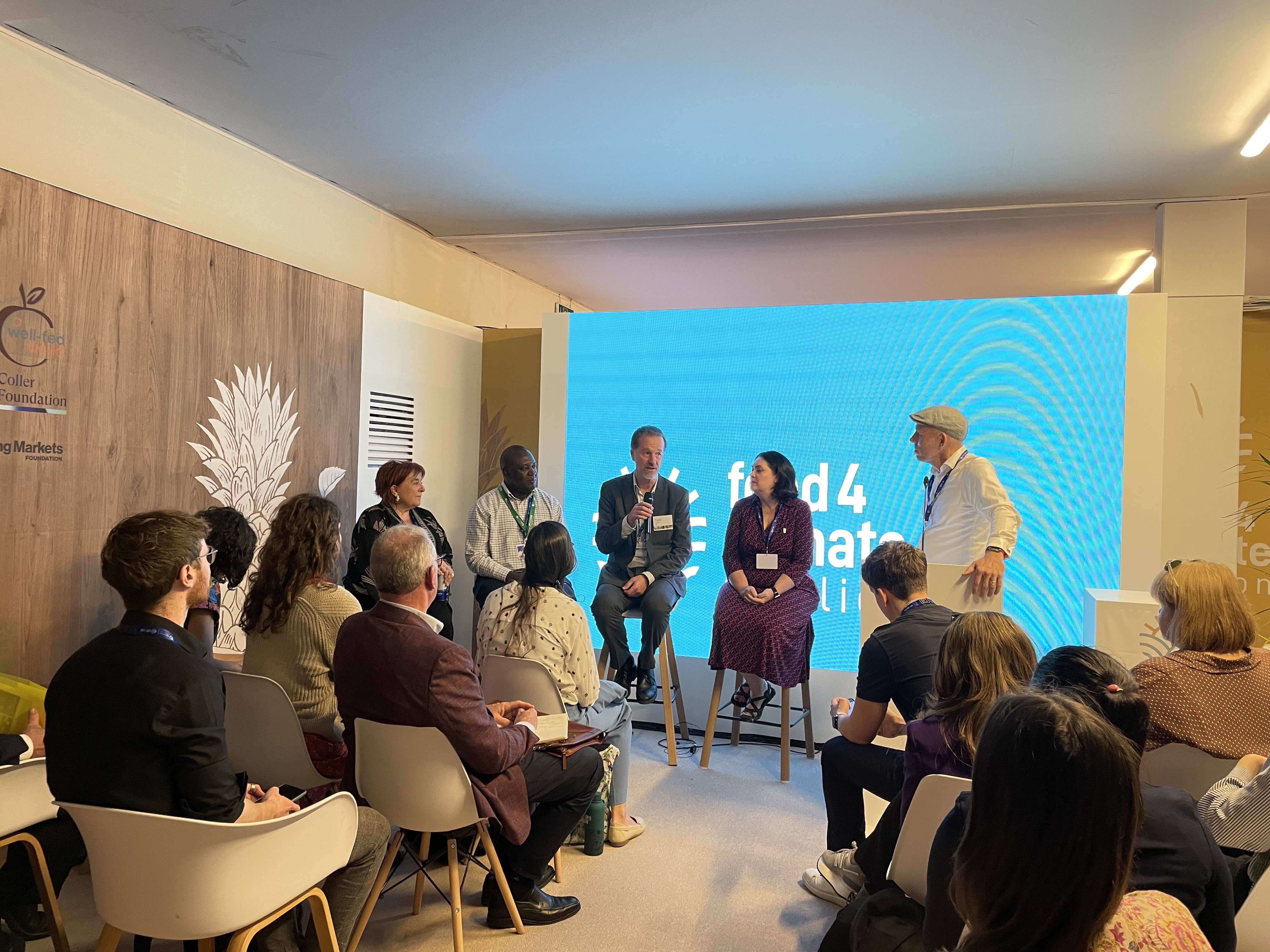
The Great Food Debate: Let them talk COP28 summary – 1 Dec
Core message
In a world so multiethnic and multicultural, our relationship with food is just as different as all of us.
These differences are what make sustainable food systems transformation on a global scale so difficult. For the sake of reducing food systems' negative impact on climate change, can advocates for alternative proteins, livestock agriculture, regenerative agriculture, plant-based diets and more come to the table and agree on climate solutions?
On 1 December 2023, the International Livestock Research Institute (ILRI) and ProVeg International co-hosted ‘The Great Food Debate: Let them talk’ side event at the COP28 Food4Climate Pavillion. Contrary to what the session title suggested, this event turned out not to be a debate but a rich discussion that brought together the plant-based movement and livestock representatives to discuss climate-resilient food systems transformation. When it comes to production, consumption and nutrition and health, one thing is clear: the global North and global South food systems need climate funding for different solutions.
We can make food production and nutrition recommendations with public policy, subsidies and incentives, but who is ‘we’? Sustainable pathways recommended for developed economies are different than developing agrarian economies. We can’t adopt the global North’s industrial systems and apply them universally. –Todd Crane, principal scientist for climate and adaptation at ILRI

Key Takeaways
During our lively discussion, here is where we found common ground:
-
Collaboration is needed to weigh tradeoffs while aiming to increase food production. Often, when governments aim to increase agricultural productivity, it comes at a cost like excessive land use or soil degradation. We need to put farmers first, helping them transition to sustainable and profitable climate-adaptive farming systems.
-
Actions toward developing more sustainable food systems must not leave behind the most vulnerable consumer. Climate action must also consider social justice. This includes children in the global North who are being presented with unhealthy, processed foods and those in the global South who don’t get a choice in what they eat. Joanna Trewern, head of research at ProVeg, explained the role institutions play in shaping sustainable consumption:
Sustainable consumption is a vital component of food systems transformation. Governments and businesses need to make healthy sustainable food the easy and attractive choice for consumers worldwide.
-
Nutritious and healthy diets look different in the global South and North, for rich and poor. Food science and innovations in relation to nutritious and healthy diets need to be end-user-focused from design, so solutions can be localized and implemented. Oliver Camp, senior associate at the Global Alliance for Improved Nutrition, described the need to consider nuances when improving nutrition worldwide:
Shifting diets is a complex balancing act. The environmental impacts of animal source foods cannot be ignored, but nor can their importance to nutrition–especially for population groups with higher micronutrient needs. We need to unpack these complexities to chart a path forward to a sustainable food system that provides nutritious diets to all.
Looking Forward
We recognise that sustainable food systems transformation does not look the same across the world. Multisectoral collaboration and enabling policy environments are necessary to ensure that governments can weigh tradeoffs when increasing food production to meet the needs of their population. Climate financing for food and ample investments in food science, innovation and inclusive scaling are necessary to ensure that everyone has access to diverse and nutritious food. Ongoing follow-up discussions are necessary to find solutions that transcend our different research backgrounds, cultures and ideologies.
Watch a recording of the full session here.
Additional resources: Learn seven ways to sustainably transform livestock systems in Africa.